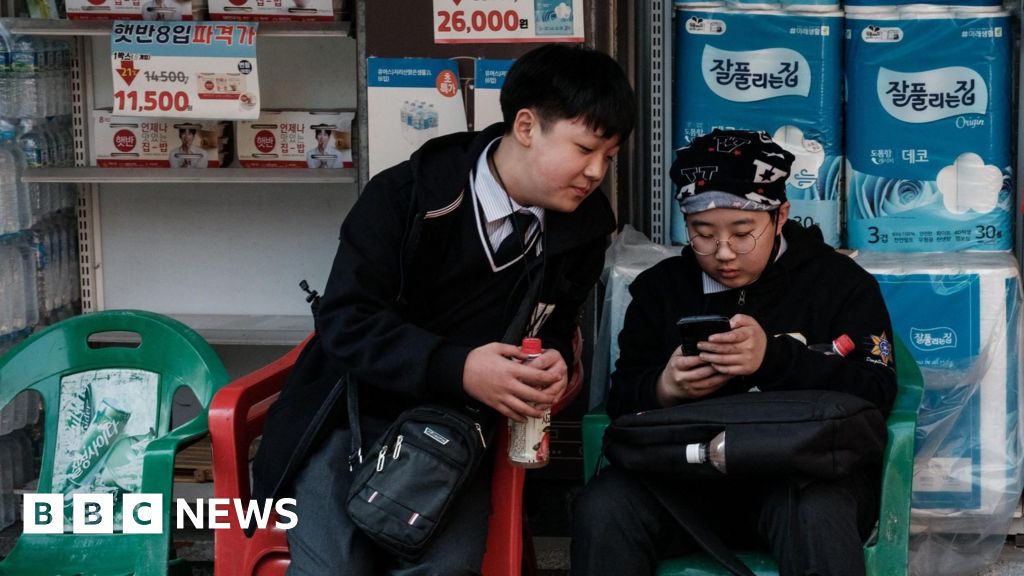South Korea has passed a bill banning the use of mobile phones and smart devices during class hours in schools - becoming the latest country to restrict phone use among children and teens.
The law, which comes into effect from the next school year in March 2026, is the result of a bi-partisan effort to curb smartphone addiction, as more research points to its harmful effects.
Lawmakers, parents and teachers argue that smartphone use is affecting students' academic performance and takes away time they could have spent studying.
The ban has its sceptics, including students, who question how it would work, its wider implications and whether it is addressing the root cause of addiction.
The bill passed convincingly on Wednesday afternoon, with 115 votes in favour out of 163 members present. Most South Korean schools have already implemented some form of a smartphone ban. And they are not the first to do so.
Countries like Finland and France have restricted phone use in younger schools. Others like Italy, the Netherlands, and China have more stringent measures in place.
However, South Korea is among the few countries to enshrine such a ban in law. Concerns about children’s smartphone dependency are becoming more prominent among the population, as a government survey indicates that nearly a quarter of South Koreans feel they depend too much on their phones.
“When they go to school, they are supposed to study and build friendships,” states a concerned parent, highlighting the potential impacts of distraction on learning.
The law, however, has raised questions among educators regarding its effectiveness, with some teachers voicing that it lacks a comprehensive approach to the issue.
Overall, as South Korea joins the ranks of countries addressing mobile addiction in schools, the effectiveness and reception of these new measures will be closely scrutinized in the years to come.




















